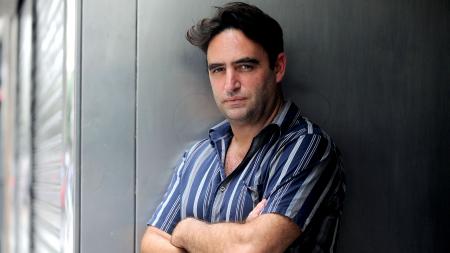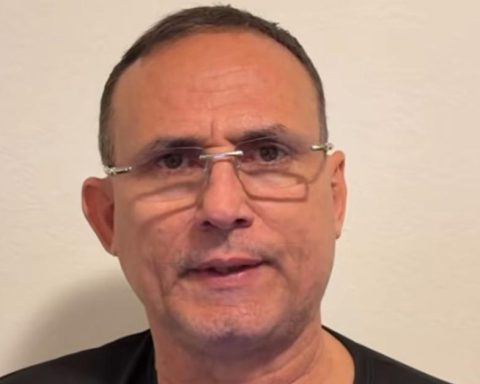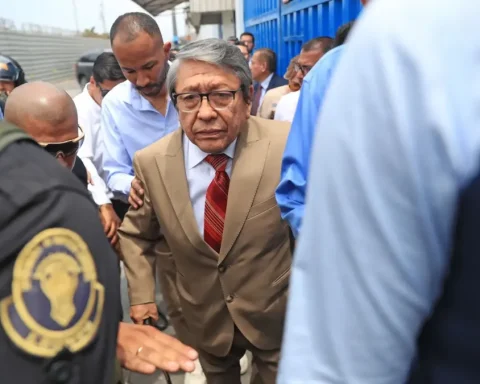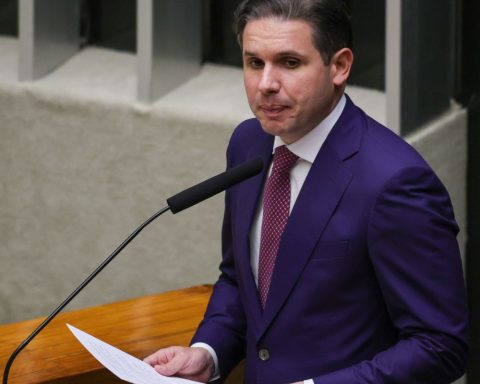Frictions with the police for “wearing a face”, “criminal recruitment” that exploits vulnerabilities, the “armed up of causes”, institutional violence, the pilgrimage of mothers and other characteristics of the juvenile penal system, are the axis of the stories that make up “Diary of a defender of kid jets” that the poet and civil servant Julián Axat will present this Monday.
In dialogue with Télam, the former juvenile criminal defense attorney of the province of Buenos Aires (2008-2015) and current head of the General Directorate of Access to Justice (ATAJO) of the Public Prosecutor’s Office of the Nation He assured that it is necessary to reform the juvenile criminal regime governed for 41 years by a law of the dictatorship, but without touching the age of imputability, and only to adapt it to the Convention on the Rights of the Child “and establish guidelines for the guaranteeing accusatory system” .
“The book is a memoir where I narrate my work experience in the first person with the purpose of disclosing the judicial act related to minors, something that judicial officials have rarely done”said.
Axat explained that his search for the “best register” to do so led him to the “Porteño etchings by Roberto Arlt” for which he ended up opting, that is, he chose as a model these short and descriptive sketches of urban life that he recreates here to “tell the functioning of the judicial machinery, its routine, its places of work, the judicial bureaucracy and its culture”.
“The most interesting thing for me in these 24 years of judicial career is the relationship that one establishes as a judicial official with the people to whom that system is directed, be they victims, perpetrators, defendants, witnesses or relatives.he pointed.
“In the book I work a lot on the mothers, because in the official defense offices they are the ones who try to support the imprisoned boy despite the fact that some of them are in very bad shape, dealing as best they can with a life that explodes in their hands. I highlight their courage and unconditional support, some of them ‘mothers of pain’ because their children end up killed by the police”, he added.
In fact, the book is dedicated to Fernanda Nicora, the mother of Sebastián, a 16-year-old teenager who in 2013 was found dead with a 9-millimeter caliber bullet in his head that a first autopsy conspicuously did not detect and presumably fired by one of those police officers. They always harassed him.

“The book collects 35 of the thousands of stories that I met as a defender, the most representative and those that transcended in the media.”
The stories
Throughout 250 pages, stories follow one another, such as that of the boys deprived of their liberty whose Christmas wish was to “see the starry sky more often” or that of the adolescent who could not answer about his personal information in court because he lost his voice. after a trip in a police car with a gun in his mouth; the review of the tricks that are put into play during the recognition rounds or the case of two adolescents imprisoned with preventive detention for having tried to steal a bottle of cheap wine, but also of his own reflections as a human rights activist and son of disappeared by having to assist their clients in former clandestine centers such as the Pozo de Arana or the 5th Police Station.
“The book collects 35 of the thousands of stories that I met as a defender, the most representative and those that transcended in the media: murders committed by young people, adolescents with criminal charges murdered by an easy trigger, high-profile cases linked to acts of recruitment to commit crimes by criminal organizations or by the police themselves,” he said.
“There I show how a defender of the poor and absent faces these defenses, what strategies he uses, how he approaches them from the moment he interviews them for the first time in a police station until the case is brought to trial, with the additional difficulty that society considers enemies and social outcasts, people who do not deserve to live”, he added.
He pointed out that “for them the punitive system has prepared an assured confinement, if not an easy trigger: hence the importance of having lawyers who comply with the guarantee of article 18 of the National Constitution that grants defense to those who do not have the possibility of be defended.”
And just as there is a “punitive selectivity” that focuses the guns of the judicial system primarily on racialized, impoverished adolescents, who live in poor neighborhoods, express themselves and dress in a certain way, Axat assures that there is also a “reverse selectivity” for middle and upper class youth.
“The book also tells how the judicial machinery works when those who commit crimes and are detained in flagrante delicto belong to the middle or upper classes, or are ‘sons of’. When police, prosecutors and judges meet these young people whom I am called to defend when a private defender has not yet been appointed, I see all the hypocrisy of the system appear ”, he explained.
“By generally they are given preferential treatment, they make agreements and manage to evade the system; that is to say, they are not tried and there is no record that they went through there “held.
Regarding the debate over the lowering of the age of imputability, “it must be an intelligent, pluralist, non-electoralist discussion, free of punitive demagogy and that starts from considering adolescents as subjects of law and not as objects of punishment”, which does not It could only conclude that lowering the limit to 14 or 15 years “would mean going backwards” in relation to what the Committee on the Rights of the Child mandates.
“However, a new democratic juvenile criminal law is needed that establishes reasonable penalties and due process guidelines, as well as a transparent regime for the entire country,” he observed.
In this sense, he pointed out that this reform should contemplate “the need for all cases of crimes against property in flagrante, to have the possibility of an oral trial” and not pressure adolescents to accept “an abbreviated trial” to starting from a file prepared only “with the police summary, the victim’s statement, and a witness that the policeman puts up.”
The new law should also focus on avoiding “the abuse of the dictation of preventive detention” for these cases, where it is customary that “the evidence is not discussed so much and tends to advance precautionary measures of prisionalization.”
The presentation of the book to be held tomorrow at 6:00 p.m. in the Cortázar room of the National Library, will have the participation of the criminal lawyer Claudia Cesaroni, the journalist Horacio Cecchi and the defender Ramiro Dos Santos Freire.

















